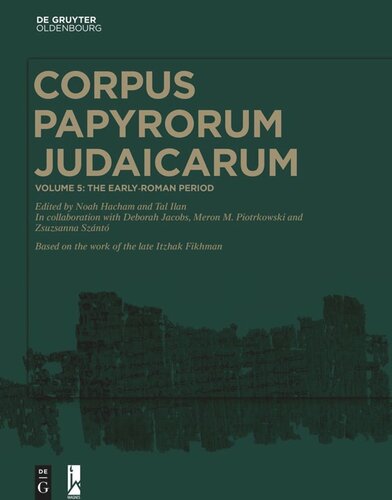

Most ebook files are in PDF format, so you can easily read them using various software such as Foxit Reader or directly on the Google Chrome browser.
Some ebook files are released by publishers in other formats such as .awz, .mobi, .epub, .fb2, etc. You may need to install specific software to read these formats on mobile/PC, such as Calibre.
Please read the tutorial at this link: https://ebookbell.com/faq
We offer FREE conversion to the popular formats you request; however, this may take some time. Therefore, right after payment, please email us, and we will try to provide the service as quickly as possible.
For some exceptional file formats or broken links (if any), please refrain from opening any disputes. Instead, email us first, and we will try to assist within a maximum of 6 hours.
EbookBell Team

4.7
76 reviewsThe period between the Roman take-over of Egypt (30 BCE) and the failure of the Jewish diaspora revolt (115–117 CE) witnessed the continual devaluation in the status of the Jews in Egypt, and culminated in the destruction of its Jewish community. This volume collects and presents all papyri, ostraca, amulets and inscriptions from this early Roman period connected to Jews and Judaism, published since 1957. It is a follow-up of the 1960 volume 2 of the Corpus Papyrorum Judaicarum. It includes over 80 documents in Greek, Demotic, and Hebrew, both documentary and literary. The expansion of the scope of documents, to include languages other than Greek and genres beyond the documentary, allows for a better understanding of the life of the Jews in Egypt. The documents published in this volume shed new light on aspects discussed previously: The Demotic papyri better explain the Jewish settlement in Edfu, new papyri reveal more about Jewish tax, about the Acta papyri, and about the developments of the Jewish revolt. The magical papyri help explain cultural developments in the Jewish community of Egypt. This volume is thus a major contribution to the study of the decline of the greatest diaspora Jewish community in antiquity.